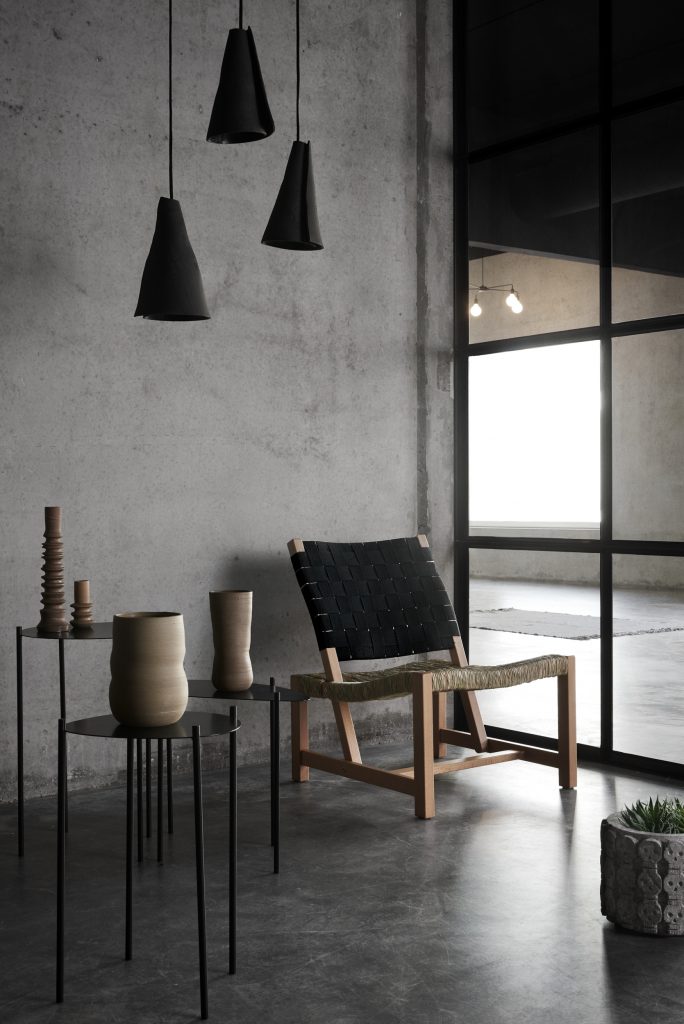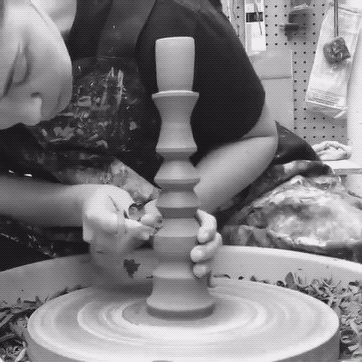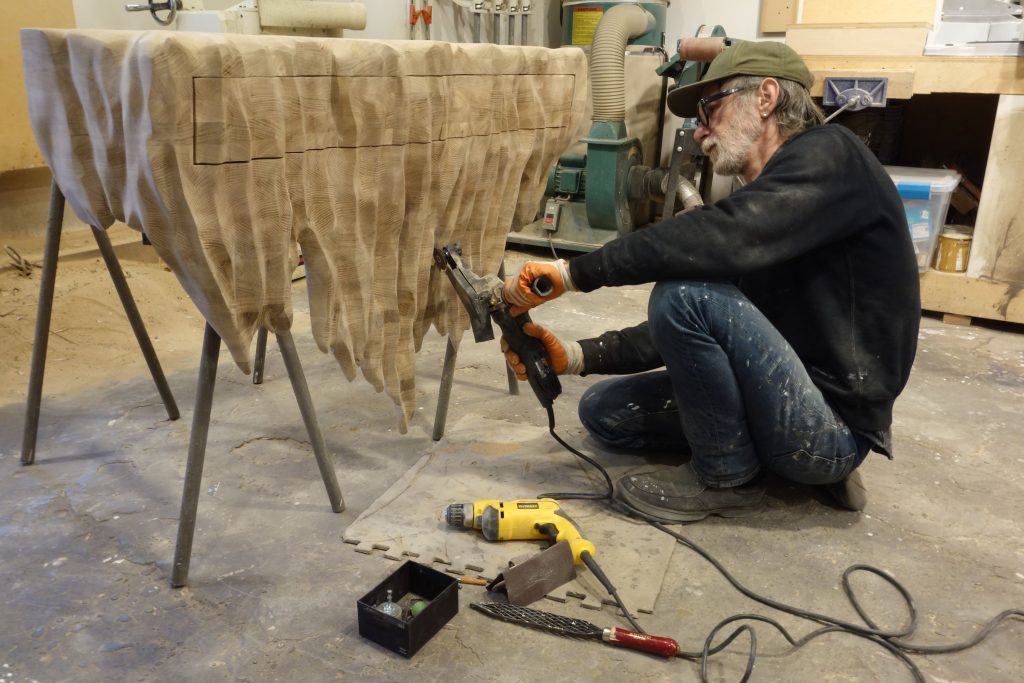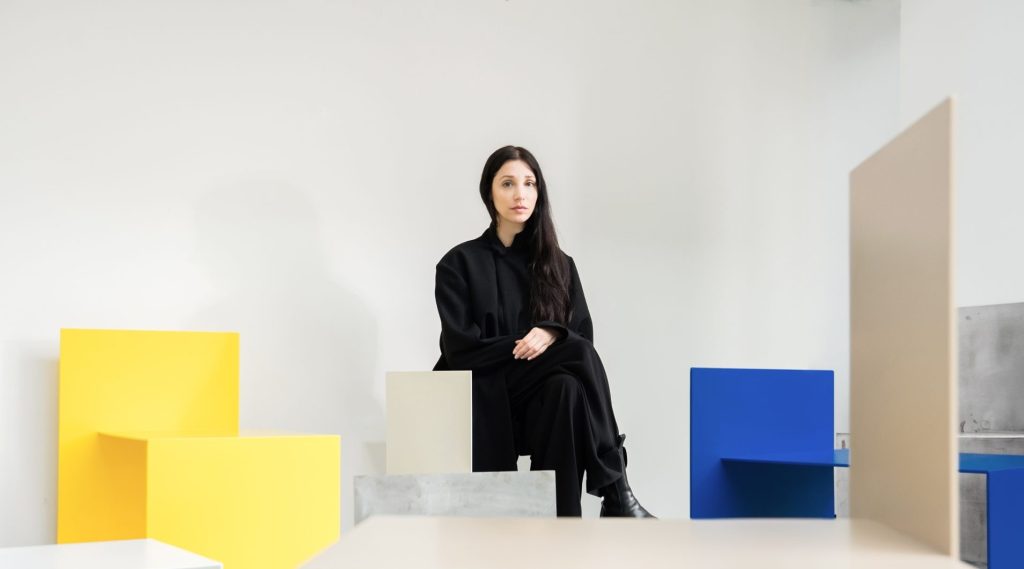Popdots at Crossovers: Contemporary Experiments on Ancient Craft
“We believe that in some cases the great mistake of the contemporary
has been to hide the past to try to innovate”
– Popdots


View Popdot’s works, “DIAS EN VELA”, “LOS” and “ILUMINA” in the Mexican Collection for Crossovers
You’ve just been given a free holiday to a destination of your choice, you may choose to spend it relaxing on the sunny beaches of the Mediterranean, trecking through Mountains in the Andes, through the rainforest of Southeast Asia, or who knows, maybe even a frozen retreat to the arctic. While on this little break from your well-known, everyday life and in your investigation of the local culture you could visit historical museums, ancient burial sites, or ruined cities, no matter where in the world you are there will be some objects, (or shards of objects) that can still be found today anywhere from folk craft markets to high-end design galleries. Ceramics would 99% of the time be amongst these objects, and the reason it’s everywhere is that, well, it is everywhere, always beneath us, basically just hardened mud. Most of our artifacts across cultures and across the globe have been recorded on this ancient art form which we have had centuries upon centuries to perfect, this may lead us to believe that leaves quite little room for innovation. After all, How many times can someone spin a ball of mud into a cylindrical shape before we’ve finally gotten tired of it?
Thanks to studios like Popdots, whose approach to the craft is centered around experimentation and dissecting the conventions of formal tradition, this ancient art form is thriving with a newfound relevance in the contemporary era. Popdots is based in Guadalajara, Mexico, a country which arguably has one of the richest ceramic environments in the world, dating back to the pre-Columbian era with traditions kept alive by the numerous cultures in this vast country. Sticking to tradition definitely has its value (and its place in the market for that matter as well) but for such creative minds finding a way to honor tradition and your culture while showcasing your unique voice is a thin line to walk. The minds behind Popdots have discovered and perfected their very own tightrope walk, by innovating through shining a light on the past they have created some truly remarkable exhibitions, installations, objects and investigations fit for modern living.
Each one of Popdot’s creations is born from unique processes resulting in infinite possibilities, whether in applying techniques from other craft disciplines, like craving wheel-thrown clay in “DIAS EN VELA”, or by removing the rigid rules of market perfection in the “LOS” vases. A focus on the process remains their guiding light, and a love for the material is evident in the final product. Popdots shares with us their vision for the development of this ancient craft and why the common picture of a future paved in uniformity and shiny metal may not be the only way forward.






Popdots, “DIAS EN VELA” Candle Holders
Ceramics is one of the oldest craft traditions and one the most connected to the earth, how does your work bring this ancient tradition into the world of contemporary design?
What has always attracted us to ceramics is its immense and extensive capacity for transformation, what we seek in our studio is to keep track of the past, we believe that in some cases the great mistake of the contemporary has been to hide the past to try to innovate, for us the true contemporaneity of the material is in its interaction with the subject and its environment in the most primitive conditions possible.


Popdots, “ILUMINA” Ceiling Lamp
How is your work influenced by your surroundings, either from the natural landscape or cultural landscape in Mexico?
It is inevitable to be influenced by what surrounds us, whether natural or cultural landscape, but what really moves us is the social landscape and its possible interactions, Mexico is a country where you fight, you share, you help people and you live to the fullest, what that we look for with the objects that we do is interaction, it’s a dialogue with people, to create awareness, to the relation of both people and objects.


Popdots, Sikté: an investigation where 20 people used 240 pieces of chewing gum to “mask” a clay skull, examining the idea of creating an immediate and instant tradition, observing in real-time its evolution and deformation upon the iconic Mexican symbol of the skull as it is orally passed through “generations”.
You have mentioned in past interviews that you learned how to make ceramics from watching YouTube videos, how has Popdots evolved in ways which you wouldn’t have imagined when you began working together?
Doing a craft is to be aware of its future but also taking advantage of the fact that the best thing about creating is not knowing how to do it, this spark of curiosity, taking advantage of error, learning, and to lack of the technique, helps you find new ways to do things, and thus understand that there will never be only one way to do it, you have to be suspicious of what is already taken for granted and explore, crash and change the processes and methodologies already imposed to surprise us with new results and thus be able to provide new questions when doing and not different ways to get to the same result.
Popdots, Eco, a ceramic smartphone amplifier, an object assisting modern technology in a form that celebrates the past.
Research and experimentation are at the core of your practice, for example incorporating latex into your work or creating Eco, a ceramic speaker for smartphones, where do these experimental ideas come from?
All of them come from experimentation, observation and play, generally in the ceramic field, in particular, it is very difficult to play with agents that move away from the logical common sense of the formula, what we do is mix, test and combine agents that even now they have nothing to do with the ceramic industry and understand if it is possible that they make sense, in the particular case of Eco, what bothered us was to ask ourselves if such a complex future was really necessary, when making a piece with primitive features like a “Horn” that complements and assists an object as technological and seemingly resolved as a smartphone.




Popdots with the Mexican Collection at Crossovers. Credit: Tommy Frost
Crossovers by Adorno will present a range of collections of dynamic works by independent designers from a selection of local scenes. The exhibition celebrates the designers and communities playing a central role in maintaining and renewing today’s local design and crafts cultures. Popdot’s work and the works presented in the Mexican Collection by Ana Elena Mallet and Pilar Obeso play a vital part in the preservation and the reinterpretation of local, authentic cultural crafts and techniques, ensuring their vitality in a contemporary design market falling victim to assimilation and forgetting its past. Presenting these works together with works from 10 other top design scenes from around the world creates a cross-cultural dialogue to examine the current state and future of contemporary design.
To preview the Mexican collection and stay up to date on the release of further news & previews sign up to our newsletter below.


Bio
Collaboration, research, and exploration are the main ingredients that give life to each of their projects.




